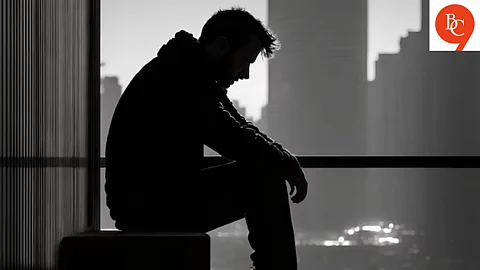

Whether it’s the pressure of success, the hyper-connected yet emotionally disconnected digital life, or the overwhelming hustle culture, today’s young Indians are feeling more isolated than ever before. This isn't just a mood — it's a full-blown epidemic.
The Rise of Loneliness in Indian Cities
According to recent mental health surveys and counseling platforms like YourDOST and iCall, a surge in anxiety, depression, and feelings of emptiness is being reported among 18–30-year-olds, especially those in urban settings like Mumbai, Delhi, Pune, and Bengaluru.
Despite being constantly surrounded by people — in coworking spaces, on metro trains, at parties — many young adults report a lack of real, meaningful connections.
What’s Causing This Urban Isolation?
1. Digital Overload, Social Disconnect
Endless scrolling on Instagram and late-night binge sessions on Netflix might provide temporary entertainment but leave a lasting void. Social media can create an illusion of connection, but the lack of face-to-face interaction only deepens loneliness.
2. Career Pressure and Hustle Culture
The expectation to be constantly productive — to be the “next big thing” before 30 — is weighing heavily. Long work hours, freelancing grinds, and toxic competition often come at the cost of friendships and family time.
3. Urban Migration
With thousands of youth moving away from home to study or work in big cities, many find themselves without support systems. In new cities, building genuine friendships beyond surface-level interactions can be challenging.
4. Changing Relationship Dynamics
Modern dating culture — with dating apps, casual flings, and commitment-phobia — often leaves people emotionally unfulfilled, even when they’re technically not “alone.”
5. Stigma Around Seeking Help
Though awareness is growing, many young Indians still hesitate to reach out for mental health support, fearing judgment or misunderstanding from family and peers.
The Mental Health Consequences
Chronic loneliness is more than just an emotional state — it has real physical and psychological consequences:
Increased risk of anxiety and depression
Weakened immune system
Sleep disorders and fatigue
Substance abuse as a coping mechanism
In extreme cases, suicidal ideation
What Can Help?
1. Rebuilding Offline Connections
Make time for in-person meetups, even if it’s just a coffee or walk. It’s the quality of interaction that matters, not the quantity.
2. Therapy & Counseling
Seeking professional help isn’t weakness — it’s survival. Many universities, workplaces, and apps now offer affordable or even free therapy sessions.
3. Community-Based Activities
Joining hobby groups, sports clubs, book circles, or even volunteering can foster organic social connections that go beyond small talk.
4. Digital Detox
Setting screen-time boundaries and being intentional about your online presence can reduce comparison, anxiety, and disconnection.
5. Family Check-ins
Even a 10-minute call to a sibling, parent, or grandparent can anchor you. Don’t underestimate the power of intergenerational support.
The loneliness epidemic among India’s urban youth is real, complex, and often silent. But recognizing it is the first step toward healing.
We don’t need to fill our calendars — we need to fill our hearts. It's not about having hundreds of contacts on your phone but about having at least one person you can truly talk to.
